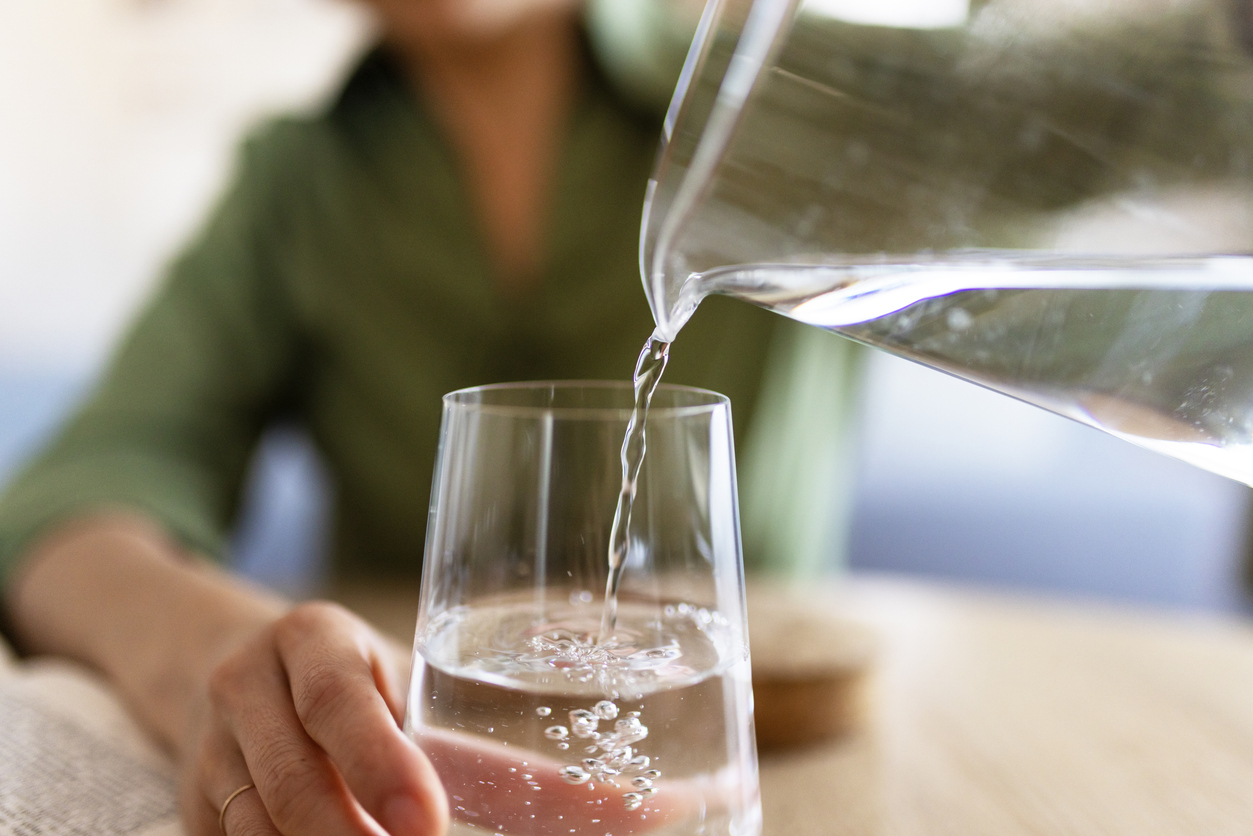Dehydration is a condition that occurs when the body loses more fluids than it takes in, leading to a deficit in essential water and electrolytes. While occasional dehydration is common and can be quickly resolved by drinking fluids, chronic dehydration is a more persistent condition. It happens when the body remains in a state of inadequate hydration for long periods, causing various health issues. In this article, we will explore the causes, symptoms, and remedies for chronic dehydration.

What Is Chronic Dehydration?
Chronic dehydration is the prolonged state of not having enough water in the body to function properly. Unlike acute dehydration, which may result from a sudden loss of fluids due to illness, exercise, or heat, chronic dehydration develops over time. This condition often goes unnoticed because its symptoms can be subtle, but it can have serious consequences for overall health if not addressed. The body's organs, tissues, and cells rely on water to perform essential functions such as digestion, circulation, and temperature regulation. Without sufficient hydration, these processes can be impaired, leading to long-term health issues.
Common Causes of Chronic Dehydration
Several factors can contribute to chronic dehydration. One of the most common causes is not drinking enough water on a daily basis. Many people underestimate their daily water needs, especially when they consume beverages such as coffee, tea, or alcohol, which can have a diuretic effect, further promoting fluid loss. In addition, high-sodium diets can contribute to dehydration by increasing the body's need for water to balance out excess salt. Certain medical conditions, such as diabetes and kidney problems, can also affect the body's ability to retain fluids. Furthermore, people living in hot climates or engaging in strenuous physical activity without replenishing fluids are at greater risk of developing chronic dehydration.
Symptoms of Chronic Dehydration
The symptoms of chronic dehydration can be less obvious than those of acute dehydration, making it harder to recognize. However, some telltale signs include persistent dry mouth, fatigue, and headaches. Chronic dehydration can also cause constipation, as the body pulls water from the intestines to maintain other functions. Muscle cramps and joint pain are other common symptoms, as dehydration affects the lubrication of joints and the function of muscles. Over time, chronic dehydration can lead to more serious complications, such as kidney stones, urinary tract infections, and even impaired cognitive function. Skin dryness and an overall lack of energy are additional indicators that the body may not be getting enough fluids.
The Importance of Electrolytes
When addressing chronic dehydration, it’s essential to consider not only water intake but also electrolytes. Electrolytes are minerals such as sodium, potassium, calcium, and magnesium that are crucial for maintaining fluid balance, muscle function, and other physiological processes. When the body loses water, it often loses electrolytes as well, which need to be replenished. This is why drinking plain water may not always be sufficient in cases of chronic dehydration. Sports drinks, coconut water, or electrolyte supplements can help restore the balance of fluids and electrolytes in the body, preventing further complications from dehydration.
Remedies for Chronic Dehydration
The first and most obvious remedy for chronic dehydration is to increase water intake. While the standard recommendation is to drink eight 8-ounce glasses of water per day, individual needs may vary depending on activity levels, climate, and health conditions. A good rule of thumb is to drink enough water so that your urine is light yellow or clear, which indicates proper hydration.
In addition to drinking more water, it’s important to consume foods with high water content. Fruits and vegetables such as cucumbers, watermelon, oranges, and lettuce are excellent choices for boosting hydration. Soups and broths can also provide additional fluids and electrolytes. If you engage in activities that cause excessive sweating, it’s a good idea to drink beverages that contain electrolytes to help maintain the balance of salts and fluids in your body.
Developing a habit of drinking water consistently throughout the day, rather than waiting until you feel thirsty, can also help combat chronic dehydration. Carrying a water bottle with you and setting reminders to drink water can help ensure that you’re staying hydrated. For those who struggle with drinking plain water, infusing it with fruits, herbs, or a splash of juice can make it more appealing and encourage regular consumption.
Preventing Chronic Dehydration
Preventing chronic dehydration involves making hydration a priority in your daily routine. Start your day by drinking a glass of water in the morning to jump-start your hydration levels after a night of sleep. Throughout the day, make sure you’re drinking water with meals and between activities, especially if you’re engaging in physical exercise or spending time in a hot environment. Monitoring your caffeine and alcohol intake is also important, as both substances can contribute to dehydration. Try to balance these beverages with an adequate amount of water to minimize their diuretic effects.
Incorporating hydrating foods into your diet and being mindful of how much water you’re losing through exercise or heat exposure are essential steps to prevent dehydration. If you have a medical condition that affects your body’s ability to retain fluids, consult with a healthcare provider about how to manage your hydration levels effectively.
Conclusion
Chronic dehydration is a condition that can lead to serious health issues if left untreated, but it is also entirely preventable with the right strategies. By staying aware of your body’s hydration needs, drinking enough water, replenishing electrolytes, and adopting healthy hydration habits, you can avoid the complications associated with chronic dehydration. Taking small steps each day to maintain proper hydration can improve your overall well-being and help you feel more energized and alert.


